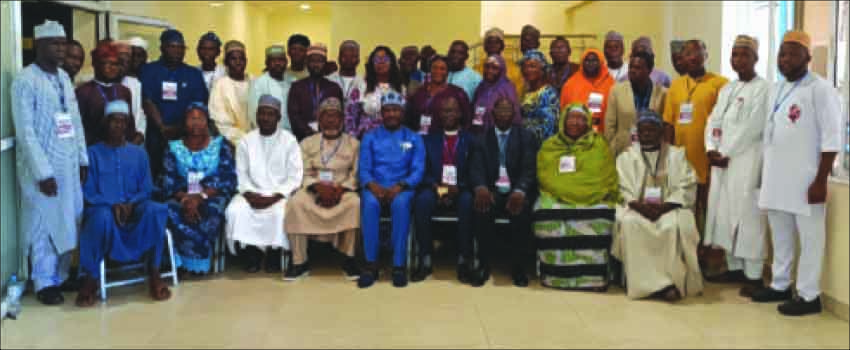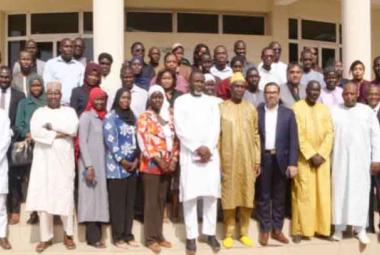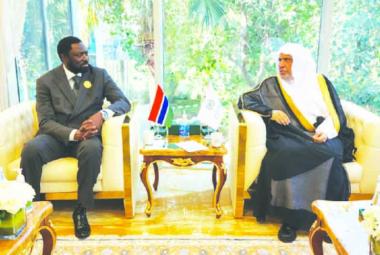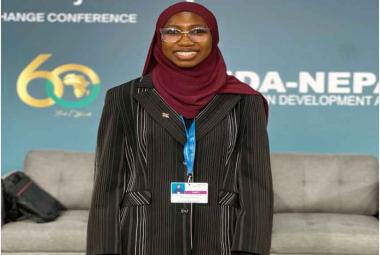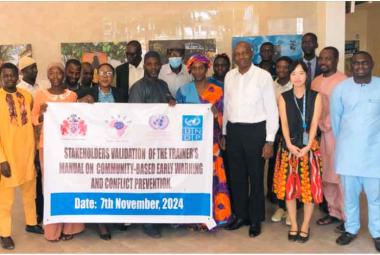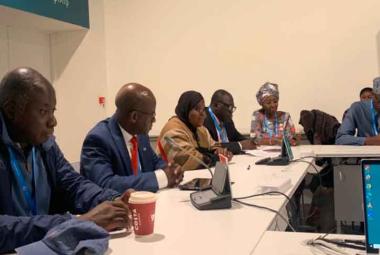By Kumba Leigh
The Inter-Governmental Action Group against Money Laundering in West Africa (GIABA), recently engaged religious leaders and institutions in a two-day national sensitisation on Anti-money laundering and Counter-Financing of Terrorism (AML/CFT) held at GIABA Secretariat in TAHIR Guest PALACE Dakar, Senegal. Mr. Edwin W. Harris JR, Director General of GIABA in his opening remarks, gave a brief discription of GIABA. He informed that it is a specialised institution of ECOWAS, as well as a FATF-style Regional Body (FSRB) for West Africa. GIABA was established in the year 2000 by the Authority of Heads of State and Government of ECOWAS, with the mandate to protect the economies of Member States from the laundering of the proceeds of crimes and combat terrorist financing (TF).
Mr Harris said GIABA works to ensure that its member states comply with acceptable International Standards on Anti-Money Laundering (AML) and Combating the Financing of Terrorism (CFT). As an FSRB, GIABA undertakes mutual evaluations – a peer review mechanism for assessing the level of technical compliance and effectiveness of member states’ AML/CFT systems with International Standards. GIABA also conducts valuable researches and typologies exercises to identify the various Money Laundering and Terrorist Financing trends and methods in order to strengthen preventive and enforcement efforts.
He posited that GIABA has risen to the challenge, through various high-impact capacity building programmes, technical assistance to various institutions of member states, sustained partnership with the international community, and far-reaching advocacies and sensitization programmes to a wide-range of stakeholders. Mr. Harris highlighted that this annual program is a culmination of various small steps that they have taken in the past, adding that in September 2011, GIABA sensitized the members of the Ahmadiyya Muslim Youth Organisation in Nigeria on Anti-Money Laundering and Combating the Financing of Terrorism, and in May 2013, they participated in a Security Conference for Church leaders. He informed that these initial steps culminated in the establishment of a targeted program for religious leaders and institutions by 2017.
He said in promoting peaceful coexistence, the voice of the religious leaders must be strongly heard against violent extremism, terrorism, corruption, human trafficking, kidnapping and other predicate offenses, but they must not only be heard, but must be seen leading the way by action and exemplary lifestyles. Mr. Harris expressed optimism that the seminar will be a springboard for a renewed commitment of all religious and opinion leaders to identifying the key roles they must play in raising awareness and shaping the morals of their congregations and followers through the force of moral persuasive messages.

